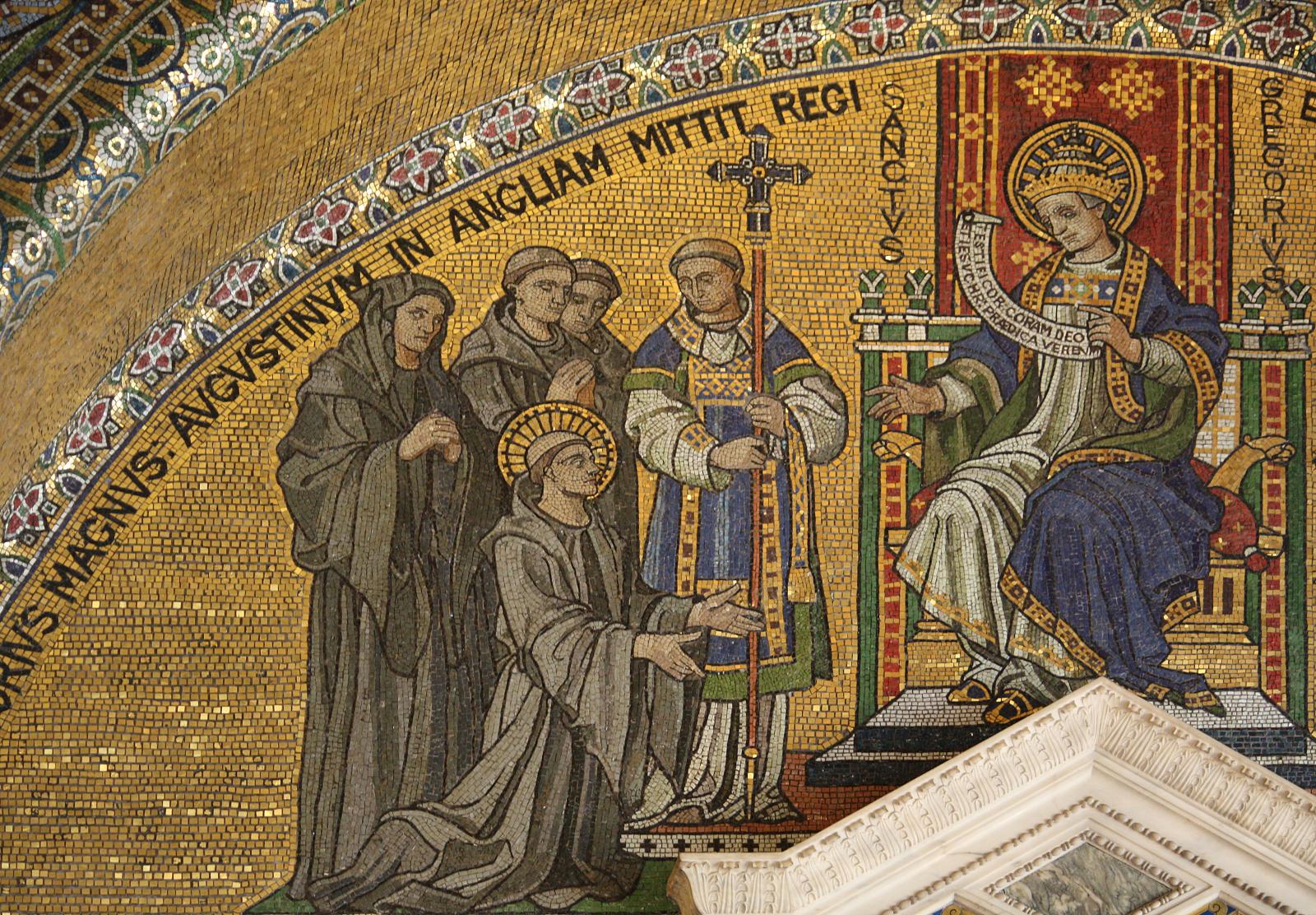By Joanna Bogle
At the end of the 6th century, Pope St Gregory the Great sent a team of missionaries to England. The pagan Anglo-Saxons, from the Germanic lands outside the Roman Empire, had steadily encroached on the island of Britain since the withdrawal of the Roman armies in 410. The part where they lived had generally come to be described as Angle-land. Christianity had come to Britain during Roman times, and lingered in substantial pockets in the western parts, the lands of the original British, whom the Saxons called the 'Welsh' or 'strangers', Wales and Cornwall.
The missionaries were Benedictine monks, led by Augustine, prior of the abbey of St Andrew in Rome. Their arrival on the shores of Kent in 597 was not unexpected. The local Saxon king, Aethelbert, was married to a Christian Gaulish princess, Bertha. Gaul (France), which had also been part of the Roman Empire, had not succumbed to pagan incursion.
Whether through persuasion by Bertha, or by conviction following Augustine’s preaching, probably a mixture of both, Aethelbert accepted baptism, and led his people to do the same. Thus the conversion of England to the Christian faith began, and with it a new era for the country, bringing literacy, an understanding of belonging to a wider civilisation, and the shaping of a specific culture.
Augustine established his episcopal See at Canterbury. There are records of his correspondence with Pope Gregory, seeking rulings on questions about marriage, reception of Communion, and other issues. A delegation from Rome brought him the pallium.
A major challenge was the relationship with the British Christians with whom he made contact. There were differences on all sorts of issues ranging from the dating of Easter to the monastic traditions, even down to the form and shape of a monastic tonsure. The British Christians had their own firm convictions and although they shared the same faith as these missionaries they were not ready to assume that Augustine could automatically impose his discipline on them.
England at that time, for the next few centuries, was not one united country but a number of Saxon kingdoms. The evangelisation of the Saxons was steady and systematic: in due course Melitus, one of Augustine’s original band of missionaries, was consecrated Bishop of London.
Most of what we know on this comes Bede, the Jarrow monk whose History of the English Church and people was written about a century after Augustine’s work began. The whole notion of a coherent sense of history, of time itself being ordered and belonging to God, is what gave the English their identity. Around the country life began to centre on the local parish church, where Mass was celebrated, marriages took places, children were baptised and the dead were buried. England became Christian.
